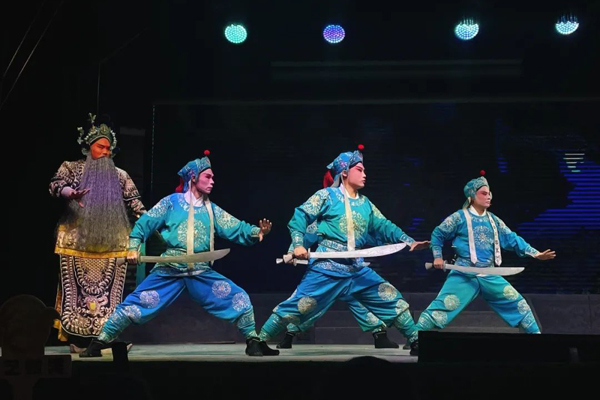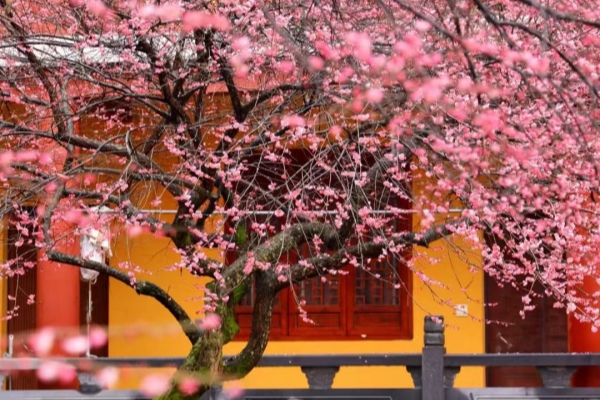Jinyun showcases intangible heritage through cultural activities
Jinyun county in Lishui city, East China's Zhejiang province, is home to 148 types of intangible cultural heritage (ICH), including four that are of national level.
To display its cultural wealth and enhance the cultural life of the rural people, Jinyun has integrated its ICH into the rural cultural halls.
Wuju Opera, one of the ICH items, has a history of more than 400 years and is widely loved by the locals.
Guandian village has a deep-rooted tradition of Wuju Opera that dates back over a century. Singing opera is a hobby for many villagers, and their folk band performances have won many national, provincial and municipal awards.
The village also has an ancient opera stage with a history of more than 800 years. It has also built a Wuju Opera museum and a characteristic cultural hall.
Since July, the village's cultural hall has regularly held Wuju Opera performances every Sunday, attracting Wuju Opera fans from across the country.

A Wuju Opera performance is staged in the cultural hall of Guandian village. [Photo/WeChat account: wxlishui]
Paper-cutting art is another ICH item that is flourishing in Jinyun.
Jinyun paper-cutting originated in the Kangxi period of the Qing Dynasty (1644-1911).
Recently, a paper-cutting art activity was held at the cultural hall of Huangbijie village in Xinbi sub-district. Liu Xiaying, a representative inheritor of Jinyun paper-cutting, was invited to teach paper-cutting skills to children.
The cultural hall became a "classroom" for the children, who came from not only Xinbi, but also other provinces such as Gansu, Jiangxi and Yunnan.

 Lishui establishes intelligent biodiversity monitoring system
Lishui establishes intelligent biodiversity monitoring system New fungus species discovered in Qingyuan
New fungus species discovered in Qingyuan Lishui transforms weirs to aid fish migration
Lishui transforms weirs to aid fish migration